We value your privacy
We use cookies to allow this site to work for you, improve your user experience, and to serve you advertising tailored to your interests. Let us know if you agree to all cookies. You can manage your preferences at any time

Your Privacy
We use cookies, which are small text files placed on your computer, to allow the site to work for you, improve your user experience, to provide us with information about how our site is used, and to deliver personalised ads which help fund our work and deliver our service to you for free.
The information does not usually directly identify you, but it can give you a more personalised web experience.
You can accept all, or else manage cookies individually. However, blocking some types of cookies may affect your experience of the site and the services we are able to offer.
You can change your cookies preference at any time by visiting our Cookies Notice page. Please remember to clear your browsing data and cookies when you change your cookies preferences. This will remove all cookies previously placed on your browser.
For more detailed information about the cookies we use, or how to clear your browser cookies data see our Cookies Notice
Manage consent preferences
These cookies are necessary for the website to function and cannot be switched off in our systems.
They are essential for you to browse the website and use its features.
You can set your browser to block or alert you about these cookies, but some parts of the site will not then work. We can’t identify you from these cookies.
These help us personalise our sites for you by remembering your preferences and settings. They may be set by us or by third party providers, whose services we have added to our pages. If you do not allow these cookies, then these services may not function properly.
These cookies allow us to count visits and see where our traffic comes from, so we can measure and improve the performance of our site. They help us to know which pages are popular and see how visitors move around the site. The cookies cannot directly identify any individual users.
If you do not allow these cookies we will not know when you have visited our site and will not be able to improve its performance for you.
These cookies may be set through our site by social media services or our advertising partners. Social media cookies enable you to share our content with your friends and networks. They can track your browser across other sites and build up a profile of your interests. If you do not allow these cookies you may not be able to see or use the content sharing tools.
Advertising cookies may be used to build a profile of your interests and show you relevant adverts on other sites. They do not store directly personal information, but work by uniquely identifying your browser and internet device. If you do not allow these cookies, you will still see ads, but they won’t be tailored to your interests.
Personalise what you see on this page.
- United States
LOOKING FOR
- Undergraduate courses
- Postgraduate courses
- CHOOSE ONE OR MORE
Popular universities
- University of Kent
- University of East Anglia UEA
- University of Chester
- Coventry University
- University of Aberdeen
- University of Portmouth
- Nottingham Trent University
- University of Sunderland
- London Metropolitan University
- London South Bank University
- University of East London
- BROWSE ALL UNIVERSITIES
Course search
Popular undergraduate courses.
- Computer Science
- LLB Bachelor of Laws
- Biomedical Sciences
- Physiotherapy
- Sports Science
Open days search
Upcoming open days.
- Heriot-Watt University
- Duchy College
- University of Bedfordshire
- Sheffield Hallam University
- Arts University Bournemouth
Article search
Popular articles.
- What is UCAS Extra?
- Replying to offers
- What's a university open day
- Student finance and funding
- Types of degree in the UK
- BROWSE ALL ARTICLES
Popular topics
- Choosing what to study
- Choosing where to study
- Applying to university
- League tables
- Student life - after you start
English and Creative Writing BA (Hons) Birmingham City University

Course options
Qualification.
Bachelor of Arts (with Honours) - BA (Hons)
Curzon Building Campus
- TUITION FEES
- ENTRY REQUIREMENT
- UNIVERSITY INFO
Course summary
Our BA (Hons) English and Creative Writing degree course will support you in developing a rigorous and creative writing practice, while also honing your critical and analytical abilities.You will develop your writing, close-reading and research skills, and learn to craft different kinds of original writing – from critical argument to fiction. In the School of English, you will be taught by respected academics and practitioners offering a diverse range of modules.You will study literature from various major periods, movements and genres. You will also have the opportunity to produce audio drama, screenplay, short stories and poetry. Your degree will allow you to tailor your studies to your individual interests and career aspirations with both a local and global outlook.
To be an effective writer you need to be an effective reader. This course combines the study of literature, enabling you to think critically about the work of published authors, poets and playwrights, with the development of your own writing craft.In the early stages of your course you will have the opportunity to work creatively across a range of genres including poetry, prose fiction and drama. You will gain a thorough grounding in the craft of writing, focusing on elements such as setting, structure, dialogue, character formation and poetic form and technique.
This course offers an optional professional placement year. This allows you to spend a whole year with an employer, following successful completion of your second year, and is a great way to find out more about your chosen career. Some students even return to the same employers after completing their studies. If you choose to pursue a placement year, you will need to find a suitable placement to complement your chosen area of study. You will be able to draw on the University’s extensive network of local, regional, and national employers, and the support of our Careers teams. If you are able to secure a placement, you can request to be transferred to the placement version of the course.Please note that fees are payable during your placement year, equivalent to 20% of the total full-time course fee for that year.Alongside the development of your creative writing practice you will study modules in English, gaining vital skills in research, critical analysis and argument.
Application deadline
Modules (Year 1)
Modules (year 2), modules (year 3), tuition fees.
- Afghanistan
- Antigua & Barbuda
- Bosnia and Herzegovina
- Burkina Faso
- Central African Republic
- Congo (Democratic Republic)
- Czech Republic
- Dominican Republic
- El Salvador
- Equatorial Guinea
- Guinea-Bissau
- Ivory Coast
- Korea DPR (North Korea)
- Liechtenstein
- Marshall Islands
- Netherlands
- New Zealand
- Northern Ireland
- Palestinian Authority
- Papua New Guinea
- Philippines
- Puerto Rico
- Republic of Ireland
- Sao Tome and Principe
- Saudi Arabia
- Sierra Leone
- Solomon Islands
- South Africa
- South Korea
- South Sudan
- St. Kitts & Nevis
- Switzerland
- Trinidad & Tobago
- Turkmenistan
- Vatican City
- Western Samoa
£ 16,085 per year
Tuition fees shown are for indicative purposes and may vary. Please check with the institution for most up to date details.
Entry requirements
Choose a qualification.
QUALIFICATION TYPE
- Scottish Higher
- Scottish Advanced Higher
- UCAS Points
- Access to HE Diploma
- Extended Project
- GCSE/National 4/National 5
- International Baccalaureate Diploma Programme
- Leaving Certificate - Higher Level (Ireland) (first awarded in 2017)
- Leaving Certificate - Ordinary Level (Ireland) (first awarded in 2017)
- OCR Cambridge Technical Certificate
- OCR Cambridge Technical Diploma
- OCR Cambridge Technical Extended Certificate
- OCR Cambridge Technical Extended Diploma
- OCR Cambridge Technical Introductory Diploma
- OCR Cambridge Technical Subsidiary Diploma
- Pearson BTEC 90-Credit Diploma (QCF)
- Pearson BTEC Certificate (QCF)
- Pearson BTEC Diploma (QCF)
- Pearson BTEC Extended Diploma (QCF)
- Pearson BTEC Level 3 National Certificate (first teaching from September 2016)
- Pearson BTEC Level 3 National Diploma (first teaching from September 2016)
- Pearson BTEC Level 3 National Extended Certificate (first teaching from September 2016)
- Pearson BTEC Level 3 National Extended Diploma (first teaching from September 2016)
- Pearson BTEC Level 3 National Foundation Diploma (first teaching from September 2016)
- Pearson BTEC Subsidiary Diploma (QCF)
- Welsh Baccalaureate - Advanced Skills Challenge Certificate (first teaching September 2015)
A level : BBC
Must include English Language or Literature A-Level at Grade C or above. In lieu of English Language or Literature A Level, subjects that include an element of essay writing will be considered as an alternative, i.e History, Religious Education, The Sciences, Philosophy, Film Studies, Communication Studies & Creative Writing all include a component of this. Applicants will be required to submit a satisfactory essay set by the department.A maximum of 4 subjects are considered. These can be other A/S Levels (as long in a
Do you need to know more?
Ask a question directly and subscribe to this university
University information

Birmingham City University
University league table, campus address.
Birmingham City University, University House, 15 Bartholomew Row, Birmingham, Birmingham, B5 5JU, England
Subject rankings
Subject ranking.
- Creative Writing
48th out of 97 24
30th out of 56 18
Entry standards
Graduate prospects
Student satisfaction
Is this page useful?
Sorry about that..., how can we improve it, thanks for your feedback.

English and Creative Writing BA (Hons)
Want to know what it's like to study this course at uni? We've got all the key info, from entry requirements to the modules on offer. If that all sounds good, why not check out reviews from real students or even book onto an upcoming open days ?
Different course options
Bachelor of Arts (with Honours) - BA (Hons)
Curzon Building Campus
Select a course option
Select a subject
Select a an exam type
Select student location
Course info
Entry requirements, popular a-level subjects, tuition fees, latest reviews.
Our BA (Hons) English and Creative Writing degree course will support you in developing a rigorous and creative writing practice, while also honing your critical and analytical abilities.You will develop your writing, close-reading and research skills, and learn to craft different kinds of original writing – from critical argument to fiction. In the School of English, you will be taught by respected academics and practitioners offering a diverse range of modules.You will study literature from various major periods, movements and genres. You will also have the opportunity to produce audio drama, screenplay, short stories and poetry. Your degree will allow you to tailor your studies to your individual interests and career aspirations with both a local and global outlook.
To be an effective writer you need to be an effective reader. This course combines the study of literature, enabling you to think critically about the work of published authors, poets and playwrights, with the development of your own writing craft.In the early stages of your course you will have the opportunity to work creatively across a range of genres including poetry, prose fiction and drama. You will gain a thorough grounding in the craft of writing, focusing on elements such as setting, structure, dialogue, character formation and poetic form and technique.
This course offers an optional professional placement year. This allows you to spend a whole year with an employer, following successful completion of your second year, and is a great way to find out more about your chosen career. Some students even return to the same employers after completing their studies. If you choose to pursue a placement year, you will need to find a suitable placement to complement your chosen area of study. You will be able to draw on the University’s extensive network of local, regional, and national employers, and the support of our Careers teams. If you are able to secure a placement, you can request to be transferred to the placement version of the course.Please note that fees are payable during your placement year, equivalent to 20% of the total full-time course fee for that year.Alongside the development of your creative writing practice you will study modules in English, gaining vital skills in research, critical analysis and argument.
Average salary
£18,000, english studies (non-specific), £17,000, what students say.
It’s a really welcoming environment. My lecturers are the nicest and are extremely helpful. The campus has a lot of resourceful available to you. Everything is very modern and.. Read more
... Read more
Modules (Year 1)
Modules (year 2), modules (year 3).
BBC Grades / Points required
Scottish Higher:
Not currently available, please contact university for up to date information.
Scottish Advanced Higher:
UCAS Tariff:
112 Grades / Points required
Access to HE Diploma:
Extended Project:
GCSE/National 4/National 5:
HNC (BTEC):
P Grades / Points required
HND (BTEC):
International Baccalaureate Diploma Programme:
28 Grades / Points required
Leaving Certificate - Higher Level (Ireland) (first awarded in 2017):
Leaving Certificate - Ordinary Level (Ireland) (first awarded in 2017):
OCR Cambridge Technical Certificate:
OCR Cambridge Technical Diploma:
OCR Cambridge Technical Extended Certificate:
OCR Cambridge Technical Extended Diploma:
DMM Grades / Points required
OCR Cambridge Technical Introductory Diploma:
OCR Cambridge Technical Subsidiary Diploma:
Pearson BTEC 90-Credit Diploma (QCF):
Pearson BTEC Certificate (QCF):
Pearson BTEC Diploma (QCF):
Pearson BTEC Extended Diploma (QCF):
Pearson BTEC Level 3 National Certificate (first teaching from September 2016):
Pearson BTEC Level 3 National Diploma (first teaching from September 2016):
Pearson BTEC Level 3 National Extended Certificate (first teaching from September 2016):
Pearson BTEC Level 3 National Extended Diploma (first teaching from September 2016):
Pearson BTEC Level 3 National Foundation Diploma (first teaching from September 2016):
Pearson BTEC Subsidiary Diploma (QCF):
Welsh Baccalaureate - Advanced Skills Challenge Certificate (first teaching September 2015):
Must include English Language or Literature A-Level at Grade C or above. In lieu of English Language or Literature A Level, subjects that include an element of essay writing will be considered as an alternative, i.e History, Religious Education, The Sciences, Philosophy, Film Studies, Communication Studies & Creative Writing all include a component of this. Applicants will be required to submit a satisfactory essay set by the department.A maximum of 4 subjects are considered. These can be other A/S Levels (as long in a different subject) A-Levels or Level 3 equivalents.
Achieve a minimum of 112 tariff points achieved in either five Highers or from a combination of two Advanced Highers plus two Highers. Where only Highers have been taken a minimum of grades BBCCC is required. Where a combination of Highers and Advanced Highers have been taken you must achieve grades of CD in two Advanced Highers plus grades of CC in two Highers.Must include English Language or Literature or combined Language and Literature subjectApplicants may be requested to complete an essay set by the department if subject doesn't contain any English.
Achieve a minimum of 112 tariff points achieved in either three Advanced Highers or from a combination of two Advanced Highers plus two Highers. Where three Advanced Highers have been taken achieve a minimum of grades CCD Where a combination of Highers and Advanced Highers have been taken you must achieve (grades of CD in two Advanced Highers plus grades of CC in two Highers).Must include English Language or Literature or combined Language and Literature subjectApplicants may be requested to complete an essay set by the department if subject doesn't contain any English.
Please visit: http://www.bcu.ac.uk/student-info/offer-making-strategy for more information about contextual offers.
Pass with 60 credits overall. At least 45 credits at Level 3 with a minimum of 18 credits in English related area at merit or above.Language, Literature and Culture subjects preferred but other subjects also considered.Applicants may be requested to complete an essay set by the department if subject doesn't contain any English.
Considered with a maximum of 3 other Level 3 qualifications (AS Levels must be in different subject to A-Levels) to obtain 112 ptsMust include English Language or Literature A-Level at Grade C or above. In lieu of English Language or Literature A Level, subjects that include an element of essay writing will be considered as an alternative, i.e History, Religious Education, The Sciences, Philosophy, Film Studies, Communication Studies & Creative Writing all include a component of this. Applicants will be required to submit a satisfactory essay set by the department.For English and Drama course will consider A Level in Performing Arts, Drama or Theatre Studies in lieu of English. Applicants will be required to submit a satisfactory essay set by the department.A maximum of 4 subjects are considered. These can be other A/S Levels (as long in a different subject) A-Levels or Level 3 equivalents.
Considered with a maximum of 3 other Level 3 qualifications (AS Levels must be in different subject to A-Levels) to obtain 112 ptsApplicants will be requested to complete an essay set by the department unless they are already holding or are working towards an A-Level in English at grade C or above.
GCSE English Language and GCSE Maths at grade C/4 or above. If you do not have these or are not undertaking them, we accept other Level 2 equivalents, or we may ask you to pass BCU's GCSE equivalency tests.
Pass with 120 credits at Level 4Must be in a related pathwayMay be considered for advanced entry onto the second year of the degree. Subject to satisfactory comparability of modular content at level 4. A transcript will be required.Applicants will be requested to complete an essay set by the department unless they are already holding or are working towards an A-Level in English at grade C or above.
Pass with 240 credits at Level 5Must be in a related pathwayMay be considered for advanced entry onto the third year of the degree. Subject to satisfactory comparability of modular content at level 4 and level 5. A transcript will be required.Applicants will be requested to complete an essay set by the department unless they are already holding or are working towards an A-Level in English at grade C or above.
Obtain a minimum of 28 points overall, including English Language or Literature at Higher LevelFor students who do not already hold a GCSE in English Language at Grade C/4 or above Standard Level English Language (not literature) English A - Grade 4 or above or English B - Grade 5 from the IB Diploma will be acceptedApplicants may be requested to complete an essay set by the department if subject doesn't contain any English.
Pass the Irish Leaving Certificate with a minimum of 112 tariff points, achieved in five Higher level subjects. This must include English Language taken at Ordinary Level (minimum grade O1-O4 (or A-C/A1-C3)) and Higher level minimum grade H1/H7 (or A-D / A1-D3 up to and including 2016
See level 3 entry under Irish Leaving Certificate for full details.
Considered with a maximum of 3 other Level 3 qualifications to obtain 112 ptsApplicants will be requested to complete an essay set by the department unless they are already holding or are working towards an A-Level in English at grade C or above.
Applicants will be requested to complete an essay set by the department unless they are already holding or are working towards an A-Level in English at grade C or above.
Top 5 A-levels taken by students who study this subject at uni.
Students living in
£9,250 per year
Students from England
This is the fee you pay if you live within England. Please note, this fee has been confirmed.
Students from Scotland
This is the fee you pay if you live within Scotland. Please note, this fee has been confirmed.
Students from Wales
This is the fee you pay if you live within Wales. Please note, this fee has been confirmed.
Students from Northern Ireland
This is the fee you pay if you live within Northern Ireland. Please note, this fee has been confirmed.
£16,085 per year
Students from EU
This is the fee you pay if you live within the European Union. Please note, this fee has been confirmed.
Students from International
This is the fee you pay if you are an International student. Please note, this fee has been confirmed.
Latest Creative Writing reviews
Review breakdown, how all students rated:, birmingham city university , birmingham.
Birmingham City University (BCU) is a large and diverse institution, which places a firm focus on providing the best possible teaching...
Student rating
Cug ranking.
Cardigan Street Birmingham B4 7BD
Birmingham City University
Thinking of studying in birmingham.
Check out our
Similar courses at this uni
Find a course.
- Undergraduate
- Foundation degree
- Access & foundation
- Postgraduate
YOUR UCAS POINTS 0
Please wait
- Home »
- Birmingham City University »
- School of English »
- Creative Writing
find your perfect postgrad program Search our Database of 30,000 Courses
Birmingham city university: creative writing.
Our MA Creative Writing helps you to develop your potential as a novelist, poet, scriptwriter or non-fiction author. It is taught by distinguished writers, with the support of a superb range of guest seminars and masterclasses by visiting authors, editors and agents, through our Institute of Creative and Critical Writing.
What's covered in the course? This postgraduate course is aimed at emerging writers, providing you with the skills and disciplines you need to advance. It’s founded upon the philosophy that writers can benefit from the same kind of training enjoyed by actors, musicians, and visual artists.
Admission to the course is based on talent, commitment and potential. Applicants submit a portfolio of writing, published or unpublished, and are then interviewed by members of the MA teaching team. Applications are considered throughout the year for entry in September of any academic year.
You’ll have the opportunity to develop your writing in the forms of your choice – be it fiction, creative non-fiction, screenwriting, writing for theatre, or poetry – and extend your range in genres that may be new to you.
You’ll attend our course of guest speakers and public events devoted to cultivating the creative imagination, the life of ideas and the literary arts, all organised by the Institute of Creative and Critical Writing based within the School of English.
As well as receiving specialist tuition from established writers, you’ll have exclusive access to six Masterclasses each year run by a Fellow of the Institute, a member of the MA team or a guest author. These Masterclasses are based on the Conservatoire model of music tuition and involve an expert public close-reading of a volunteered student text.
You’ll study at our new £63 million development, the Curzon Building, which opened in September 2015 and boasts a richly stocked University Library, a wealth of digital learning resources, a new Students’ Union and a dedicated student support hub.
Full-Time, 1 years starts Jan 2025
Full-time, 1 years starts sep 2024, part-time, 2 years starts sep 2024.
Not what you are looking for?
Scholarship Opportunity with Postgrad.com
Are you a PG student at this University or have you applied to study a postgraduate program at a university in Europe? Tell us your plans and qualify for a £500.00 PGS Scholarship.

Exclusive bursaries Open day alerts Funding advice Application tips Latest PG news
Sign up now!

Take 2 minutes to sign up to PGS student services and reap the benefits…
- The chance to apply for one of our 5 PGS Bursaries worth £2,000 each
- Fantastic scholarship updates
- Latest PG news sent directly to you.
- See all Countries
- United Kingdom
- Netherlands
- Switzerland
- Online Learning
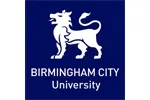
English and Creative Writing, BA (Hons)
Birmingham City University, the United Kingdom
- Study options for English and Creative Writing
- About English and Creative Writing
Courses you may be interested in at other institutions
Other courses at birmingham city university, study options for this course, about english and creative writing, ba (hons) - at birmingham city university.
Please visit the Birmingham City University web site for further information.
Entry requirements for this course
Contact Birmingham City University to find course entry requirements.
Below are some suggested courses at other providers that you may also be interested in:
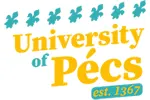
Andragogy MA
University of Pécs
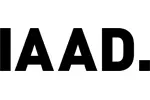
Master in Design for Mobility Solutions Master Degree
IAAD. - Institute of Applied Art and Design
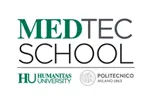
MEDTEC School MD
Humanitas University, MEDTEC School

International Business BBA
Windesheim University of Applied Sciences
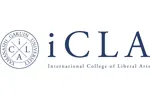
Psychology Bachelor of International Liberal Arts
International College of Liberal Arts (iCLA) at Yamanashi Gakuin University
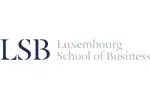
Summer School - Bachelor Students BSc
Luxembourg School of Business
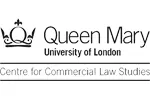
International Dispute Resolution (Queen Mary Online) LLM, PG Dip, PG Cert
Centre for Commercial Law Studies, Queen Mary, University of London (QMUL)
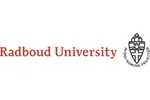
Human Geography MSc
Radboud University, Nijmegen School of Management
Don't meet the entry requirements?
Consider a Foundation or Pathway course at Birmingham City University to prepare for your chosen course:

Business and Management
Birmingham City University
Early Years
Foundation and Pathway Courses at other institutions
If you do not meet the entry requirements for this course then consider one of these courses from another institution:
Preparatory Courses in English for Degree Studies (Medical, Business, Architecture and Engineering, Psychology, English and American Studies)

English Foundation Program
EU Business School, Munich
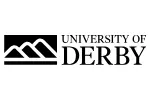
Nursing Associate (direct entry)
University of Derby

EU Business School, Geneva
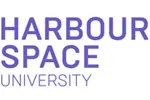
Maths as a Second Language - Barcelona, Spain
Harbour.Space University

IED – Istituto Europeo di Design
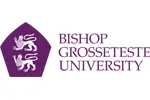
Professional Studies (Education)
Bishop Grosseteste University
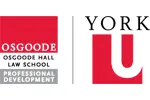
NCA Online Exam Prep
Osgoode Professional Development
There are 431 other courses listed from Birmingham City University. A selection of these are displayed below:
Accounting and Finance BSc (Hons)
Accounting and Finance MSc
Accounting and Finance (Masters Stage) MSc
Accounting and Finance with Foundation Year BSc (Hons)
Accounting and Finance with Professional Placement Year BSc (Hons)
Adult Nursing (January) BSc (Hons)
Adult Nursing (September) BSc (Hons)
Advanced Clinical Practice MSc
Related Information
See other universities in Birmingham
Find out more about studying in the United Kingdom
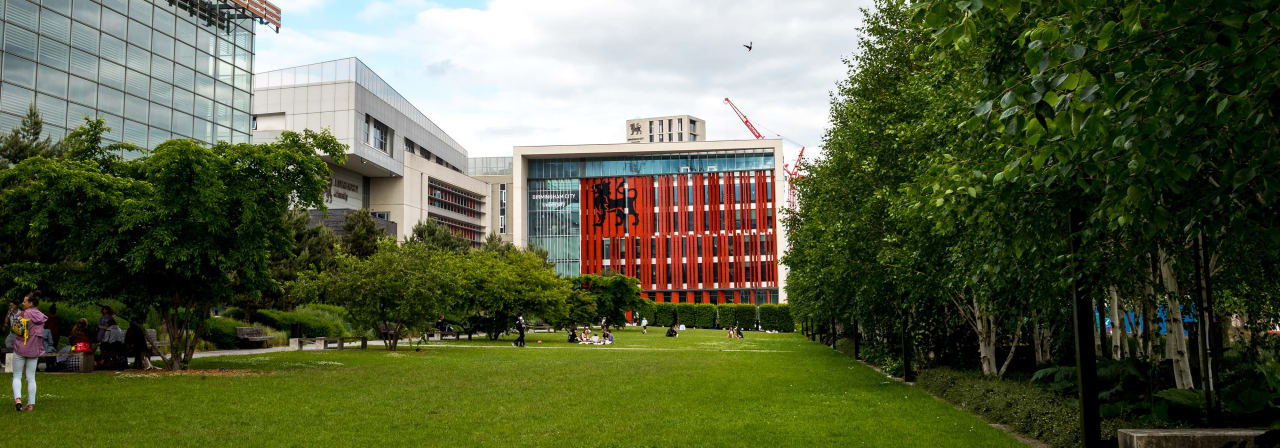
BA in English and Creative Writing
Birmingham City University

Introduction
Career opportunities, about the school.
- Ask a Question
Key Information
Campus location
Birmingham, United Kingdom
Study format
3 - 6 years
Full time, Part time
Tuition fees
GBP 9,250 / per year *
Application deadline
Request info
Earliest start date
* UK students: £9,250 per year | international students: £13,980 per year
Scholarships
Explore scholarship opportunities to help fund your studies.
Our BA (Hons) English and Creative Writing degree course will support you in developing a rigorous and creative writing practice, while also honing your critical and analytical abilities.
You will develop your writing, close reading and research skills, and learn to craft different kinds of original writing – from critical argument to fiction. In the School of English, you will be taught by respected academics and practitioners offering a diverse range of modules.
You will study literature from various major periods, movements and genres. You will also have the opportunity to produce audio drama, screenplay, short stories and poetry. Your degree will allow you to tailor your studies to your individual interests and career aspirations with both a local and global outlook.
What's covered in this course?
English and Creative Writing allows you to examine how language and literature engage with societies and cultures past and present, to develop a rigorous, creative and disciplined writing practice, and to express insights into contemporary concerns, affecting the way you and others see the world.
Through workshops with published authors, you will hone your writing craft, experimenting with forms including audio drama, screenplay, short fiction, poetry and the novel. You will produce polished pieces of writing using creative and analytical approaches that complement your study of English.
You will benefit from student-focused and research-informed teaching in a friendly, supportive learning environment where you will be taught by respected academics and expert practitioners who foster a community of experimentation, innovation and inclusivity.
Our graduates are characterised by their inventiveness, critical thinking and intellectual curiosity, reflected in the skills and abilities that enable them to adapt to a wide range of career paths and employment opportunities. Throughout your studies, you will develop a range of transferable skills valued in the creative industries and beyond.
The School is committed to contributing to the cultural life of Birmingham and the wider West Midlands. We do this through working closely with partner colleges and schools, by maintaining close links with cultural institutions such as the Birmingham and Midland Institute (BMI) and Birmingham Museum and Art Gallery (BMAG), and by working with agencies such as Writing West Midlands. In all of this, we seek to widen participation and provide opportunities for the community to engage with the discipline and the University.
Professional placement year
This course offers a professional placement year. This allows you to spend a whole year with an employer, between the second and third years of your degree and is a great way to find out more about your chosen career. Some students even return to the same employers after completing their studies.
The University will draw on its extensive network of local, regional and national employers to support you in finding a suitable placement to complement your chosen area of study. If you do not find a suitable placement, you will be automatically transferred back to the standard, non-placement version of the course.
Please note that fees are payable during your placement year, equivalent to 20% of the total full-time course fee for that year (£1,850 for UK students).

Why choose us?
- You’ll be taught by expert practitioners and world-leading academics, who encourage experimentation and innovation. Our courses are interdisciplinary by design, offering opportunities to explore literature, drama, language and creative writing, and collaborate in, for instance, student-led conferences and showcases.
- Alongside your formal learning, you’ll have the opportunity to meet acclaimed authors and industry specialists as part of the activities of our Institute of Creative and Critical Writing. Recent guests include author Kit de Waal, poetry activist Jo Bell, agent Cathryn Summerhayes, and Writing West Midlands’ CEO, Jonathan Davidson.
- You’ll be part of a thriving creative community, alive with opportunities to develop your creative and critical skills. We encourage you to seek out ways to collaborate with student actors, radio producers, musicians and illustrators across a Faculty equipped with world-class production facilities and an internationally-acclaimed student radio station.
- Top 10 for Creative Writing student satisfaction (Complete University Guide 2023).
- We contribute to a thriving literary scene, whether it’s holding informal poetry readings in the pub, hosting the launch of the acclaimed Poetry Review, or interviewing Man Booker Prize-shortlisted authors at Birmingham Literary Festival.
- Our teaching staff are also expert researchers in English Language and Literature. . 94% of research in English at BCU was judged to be either world-leading (4*) or internationally excellent (3*) in REF2021
In order to complete this course you must successfully complete all the following core modules (totalling 100 credits):
- Literature, Drama and Origin
- Foundations of Language
- Foundations of Creative Writing
- Craft of Writing
- Key Critical Concepts
In order to complete this course you must successfully complete at least 20 credits from the following list of optional modules.
- Literature and Conflict
- Language in Action
- Modern Drama
Core modules are guaranteed to run. Optional modules will vary from year to year and the published list is indicative only.
In order to complete this course you must successfully complete all the following core modules (totalling 60 credits):
- Writing and the Environment
- Writing Short Stories
In order to complete this course you must successfully complete at least 60 credits from the following list of optional modules.
- Collaborative Practice
- Work Placement
- Foundations of Screenwriting
- Writing Poetry
- Writing Audio Drama
- Documentary Drama
- Language in Society
- Gender, Sexuality and Culture
- The Victorians
- Literature and the Child
- Multicultural Writing
- Early Modern Literature
In order to complete this course you must successfully complete all the following core modules (totalling 80 credits):
- Writing the Novel
- Major Project
In order to complete this course you must successfully complete at least 40 credits from the following list of optional modules.
- Writing Creative Nonfiction
- Writing Short Films
- Nature Writing
- Forensic Linguistics
- Language and Gender
- Teaching English as a Foreign Language
- Literature, Art and Philosophy
- Psychology in Victorian Literature
- Speculative Fiction
- Shakespeare Studies
- Moral Philosophy
- Milton’s Epic
- World Literature
- The Uncanny
- Corpus Linguistics
Enhancing Employability Skills
Employability is embedded across our programme, from the sector- and industry-specific skills in creative writing, drama, linguistics and literature, to transferable skills that hold real value regardless of your employment direction, including literacy and numeracy, time management and organisation, oral and written communication, teamwork, initiative and enterprise, creative and analytical thinking, self-direction and discipline, independence, information gathering and interpersonal skills.
You will have multiple opportunities to engage in problem-solving and problem-based learning, particularly through individual assessments and collaborative practice modules, and to reflect on your own career development needs through participating in the Graduate+ scheme and other employability schemes over the course of your degree.
The School is committed to developing strong links with employers in Birmingham and the West Midlands. Several languages and Creative Writing modules have explicit employer and industry engagement, where you work in collaboration with employer and external partners over the course of the semester and are encouraged to adopt industry-standard practices to facilitate connections and links independently with external partners.
In the case of the Work Placement module, you will have the opportunity to develop skills and abilities in a sector-specific context, while ensuring that academic aims and objectives are met as part of your wider learning journey.
Links to Industry
We regularly seek out opportunities to build further links with partner organisations in the region, including Creative Black Country, Birmingham Literary Festival, Birmingham Museums Trust (including Birmingham Museum and Art Gallery), Black Country Museum Trust, Arvon Creative Writing Foundation, Flatpack Film Festival, West Midlands Screenwriters' Forum, and other Schools within the University, in addition to publishers, charities, third sector organisations, and more, in Birmingham and beyond.
Similar Courses
Ma english - creative writing.
- Belfast, United Kingdom
Bachelor of Fine Arts in Creative Writing
- Cincinnati, USA
Master of Fine Arts (MFA) in Writing for Film, Television, and Digital Media
- San Francisco, USA
Creative Writing
Poetic forms and the short story form from a practitioner's viewpoint; narrative structure, characterisation, use of poetic language, dialogue, metaphor and imagery.
Recent searches
We won't record your recent searches as you have opted out of functional cookies. You can change this on our Manage Privacy page should you wish to.
Popular searches
- Scholarships
- Postgraduate Guide
- Student Finance
- Student Support
Suggested searches
- Life in Birmingham
- Graduate Scholarship
English and Creative Writing BA (Hons) Birmingham City University
Key course facts.
- Admission advice for international students
Student Reviews
Below you can see course specific reviews for 15 graduates of English and Creative Writing BA (Hons) at Birmingham City University for each of the survey questions in comparison to the average for all UK degree courses in English Studies (Non-Specific).
Salary of Graduates in English Studies (Non-Specific)
Important: Salary data below is not course specific, but contains data of all students of English Studies (Non-Specific) at the university. Due to data collection methodology, salary data is mainly based on data related to undergraduate students .
Salary of all UK Graduates of English Studies (Non-Specific)
Course description.
Our BA (Hons) English and Creative Writing degree course will support you in developing a rigorous and creative writing practice, while also honing your critical and analytical abilities.
You will develop your writing, close-reading and research skills, and learn to craft different kinds of original writing – from critical argument to fiction. In the School of English, you will be taught by respected academics and practitioners offering a diverse range of modules.
You will study literature from various major periods, movements and genres. You will also have the opportunity to produce audio drama, screenplay, short stories and poetry. Your degree will allow you to tailor your studies to your individual interests and career aspirations with both a local and global outlook.
English and Creative Writing pathway
To be an effective writer you need to be an effective reader. This course combines the study of literature, enabling you to think critically about the work of published authors, poets and playwrights, with the development of your own writing craft.
In the early stages of your course you will have the opportunity to work creatively across a range of genres including poetry, prose fiction and drama. You will gain a thorough grounding in the craft of writing, focusing on elements such as setting, structure, dialogue, character formation and poetic form and technique.
Professional Placement Year
This course offers an optional professional placement year. This allows you to spend a whole year with an employer, following successful completion of your second year, and is a great way to find out more about your chosen career. Some students even return to the same employers after completing their studies.
If you choose to pursue a placement year, you will need to find a suitable placement to complement your chosen area of study. You will be able to draw on the University’s extensive network of local, regional, and national employers, and the support of our Careers teams. If you are able to secure a placement, you can request to be transferred to the placement version of the course.
Please note that fees are payable during your placement year, equivalent to 20% of the total full-time course fee for that year.
Alongside the development of your creative writing practice you will study modules in English, gaining vital skills in research, critical analysis and argument.
Jobs & Career Perspectives
15 months after graduation, graduates of this course were asked about what they do and, if they are working, about their current job and their perspectives.
What graduates are doing after 15 months
Current jobs, job in line with future plans, utilise skills from studies, work is meaningful, required skill level of job after 15 months, % skilled jobs, jobs of graduates of this course (15 months after graduation).
Example below based on all graduates of English and Creative Writing BA (Hons) at Birmingham City University
Entry Requirements / Admissions
Ucas tariff of accepted students for this course, qualification requirements.
Including a relevant subject/science @ C or above (80 UCAS tariff points)
Level 4 qualification in a related discipline (usually HNC in an engineering pathway).
ALL applicants must possess a Level 5 qualification, such as an HND or FdA in a relevant area in order to be considered for this course. A copy of your HND/FdA module transcripts will be requested, and the original required to be seen at enrolment.
Scottish Higher qualifications are considered on an individual basis
D*D in the BTEC Level 3 Diploma plus grade A in A-level mathematics. or DD in the BTEC Level 3 Diploma plus grade A* in A-level mathematics. We are committed to ensuring that all learners with the potential to succeed, regardless of their background, are encouraged to apply to study with us. The additional information gained through contextual data allows us to recognise a learner’s potential to succeed in the context of their background and experience. Applicants who are highlighted in this way will be made an offer which is lower than the typical offer for that programme. We do not accept the BTEC Extended Diploma without A-level maths. Applicants with a BTEC Extended Diploma should apply for the Engineering/Physics/Mathematics/Geophysics Foundation Year.
Considered at confirmation
Access to HE Diploma
Considered with a maximum of 3 other Level 3 qualifications to obtain 88 pts Preferred subjects:- Art and Design, Business and Economics, Construction and Built Environment, Design Technology, English, Geography, History, Languages, Land Based and Environment, Music, Performing Arts and Drama, Science Excluded subjects:- Hair and Beauty, Health and Social Care, Hospitality, Early Years, Customer Service, Citizenship, Accounting, PE and Sport, Public Services and Uniformed Services, Travel & Tourism Applicants doing Media subjects will be considered on an individual basis by Admissions Tutor.
Including one in a relevant subject/science (80 UCAS tariff points)
A minimum of DDM with the main subjects being Science or Maths. Also required: GCSE at C or above in English or English Language, Mathematics and in either Chemistry, or Physics or Dual Award Science.
With this BTEC you must also achieve grades BB in two A Level subjects.
D in the BTEC Subsidiary Diploma plus grades A*A in two A-levels including mathematics (minimum grade A) or D* in the BTEC Subsidiary Diploma plus grades AA in A-levels including mathematics. We are committed to ensuring that all learners with the potential to succeed, regardless of their background, are encouraged to apply to study with us. The additional information gained through contextual data allows us to recognise a learner’s potential to succeed in the context of their background and experience. Applicants who are highlighted in this way will be made an offer which is lower than the typical offer for that programme. We do not accept the BTEC Extended Diploma without A-level Maths. Applicants with a BTEC Extended Diploma should apply for the Engineering/Physics/Mathematics/Geophysics Foundation Year.
BTEC Level 3 National Diploma: DD plus A Level English at grade B. Preferred:- Performing Arts, Art & Design, Digital Film and Video Production,Business IT, Applied Science,Sport, Sport and Exercise Science
Where an applicant is taking the EPQ in a relevant subject this might be considered alongside other Level 3 qualifications and may attract an alternative offer in addition to the standard offer. If you are taking A Levels, this would be BBB-ABB at A Level (preferably including a foreign language) and grade A in the EPQ.
Grade combinations between 112 - 128 points considered when combined with other Level 3 qualifications including AS and Extended Project to achieve 112 - 128 points. (Subject grades achieved at AS level and then taken at A2 do not count).
31-30 overall or 665-655 in 3 HL subjects.
Can be considered along with a minimum of 2 of the following qualifications: A-levels, BTEC Subsidiary Diplomas/ OCR Cambridge Technical Diplomas. Can also be considered in combination with a BTEC extended diploma, art and design foundation diploma or UAL extended diploma to obtain 88 pts Art and design, Business, Engineering, IT, Media, Performing Arts excluding Health and Social Care, Sport
Pearson BTEC Level 3 National Extended Diploma (first teaching from September 2016)
Including one in a relevant subject/science (90 UCAS tariff points)
We consider the National Foundation Diploma for entry, preferably in a subject relevant to this course. Entry requirements are based on achievement of the full National Foundation Diploma with a Distinction grade, PLUS one A-level at Grade A in an essay-based arts, humanities or social science subject, PLUS an EPQ or AS at Grade B.
In a relevant subject/science (112 UCAS tariff points)
BTEC Level 3 National Extended Certificate: D plus AB in two A Levels to include English. Preferred:- Performing Arts, Art & Design, Digital Film and Video Production,Business IT, Applied Science,Sport, Sport and Exercise Science
Combined with other level 3 qualifications to achieve 112 - 128 tariff points.
The Welsh Baccalaureate Skills Challenge Certificate will be accepted in lieu of one A Level at the A Level grades specified, excluding any subject specific requirements.
English language requirements
Tuition fees english and creative writing ba (hons), average student cost of living in the uk.
London costs approx 34% more than average, mainly due to rent being 67% higher than average of other cities. For students staying in student halls, costs of water, gas, electricity, wifi are generally included in the rental. Students in smaller cities where accommodation is in walking/biking distance transport costs tend to be significantly smaller.
How to apply
Application deadline:.
January 1, 2025
This is the deadline for applications to be completed and sent for this course. If the university or college still has places available you can apply after this date, but your application is not guaranteed to be considered.
Possible Entry Points:
- year 1 (Default entry point)
University Rankings
Positions of birmingham city university in top uk and global rankings., rankings of birmingham city university in related subject specific rankings., languages & literature, about birmingham city university.
Founded in 1853, Birmingham City University (BCU) is located in the city of Birmingham, England. The student population of this institution is made up of students from over 80 nationalities, which allows newly arrived foreign students to quickly feel welcome and at home. State-of-the-art facilities and resources await students on all courses, including the latest Engineering technology, 3D Printing studios, and Horology Workshops, just to name a few. BCU maintains a reputation for having a selective admissions process, so all applicants are recommended to prepare for their interview thoroughly.
List of 265 Bachelor and Master Courses from Birmingham City University - Course Catalogue
Student composition of Birmingham City University
Where is this programme taught.
Similar courses
Ranking publishers, the university league tables, cug the complete university guide - by subject (published: 08 june, 2023).
view methodology

Recommended pages
- Undergraduate open days
- Postgraduate open days
- Accommodation
- Information for teachers
- Maps and directions
- Sport and fitness
MA Creative Writing
Annual tuition fee for 2024 entry: UK: £10,530 full-time International: £24,120 full-time More detail .
- Visit an Open Day
- Request a prospectus
- Course details
- Entry Requirements
- Teaching and assessment
- Employability
Short fiction, the novel, poetry, plays and screenplays: define and refine your chosen genre at the University of Birmingham, and explore genres that are new to your writing experience.
If you are a graduate with considerable experience in writing creatively and wish to proceed to a career or further study in this area, then our innovative MA in Creative Writing is for you.
The programme will allow you to develop your own work, your own voice and your own ideas with dedicated workshop time and opportunities to give and receive feedback to and from your peers. You will also benefit from professional skills training to prepare you for your encounters with the writing industry, with insights from industry professional such as editors and publishers.
The programme brings together students who work across different genres so that you can engage collaboratively across genres before specialising in screenwriting, playwriting, prose fiction or poetry for your dissertation.
Please note : There are specific application deadlines for this programme. Please see 'How to apply' in course details for more information .
Birmingham Masters Scholarships

We are offering over 400 awards of £2,000 to support the brightest and best applicants wishing to undertake Masters study at the University during 2023-24. The deadline for applications is 23:59 (UK Time) on Sunday 2 July 2023.
Find out more and apply now.
Scholarships for 2024 entry
The University of Birmingham is proud to offer a range of scholarships for our postgraduate programmes. With a scholarship pot worth over £2 million, we are committed to alleviating financial barriers to support you in taking your next steps.
Each scholarship has its own specific deadlines and eligibility criteria. Please familiarise yourself with the information on individual scholarship webpages prior to submitting an application.
Explore our scholarships
Virtual Open Day: Postgraduate opportunities in Creative Writing - 7 March 2020, 14:00-15:00

Join us online to watch a range of staff and student videos, and take part in our online chat where Dr Daniel Vyleta will be answering your questions about postgraduate study.
Find out more and register
At Birmingham, Postgraduate Taught and Postgraduate Research students also have the opportunity to learn graduate academic languages free of charge, to support your studies.
- Graduate School Language Skills

The best thing the course has taught me is to not re-invent the wheel every time you want to write a new piece, and how to tactically draw from the works of other writers to give structural integrity or strong philosophical underpinnings to any new text I write. Cameron Smith, MA Creative Writing
Why study this course?
- Breadth and depth of study – at Birmingham we focus on the craft of writing and editing, combining academic with creative skills, and an artistic focus with industry insights.
- Learn from our permanent staff of published authors - Anna Metcalfe , a short story writer and novelist, who has been named among Granta’s 2023 cohort for the Best of Young British Novelists; Elsa Braekkan Payne , an expert in the short story who also has particular interests in editing; Luke Kennard , a poet and novelist whose criticism appears in Poetry London and the Times Literary Supplement; Richard House , fiction and screenwriter, long-listed for the Man Booker Prize; Dan Vyleta , an award winning, bestselling novelist; Isabel Galleymore , an award-winning poet; and the best-selling novelist Ruth Gilligan .
- Opportunities for experimentation – the course combines focused modules with the opportunity to develop your own work through independent study.
- Join a lively and supportive writing community – we encourage our students to be active within the university and the broader community, and to participate in readings, festivals, and events, both regionally and nationally. For example the Creative Writing Societies provide an energetic and talented scene in which to write. There are regular events, readings, poetry slams and student publications.
- Links within the West Midlands – the Department has links to the award winning local press Tindal Street and the boutique poetry pamphlet publishers Nine Arches Press. Each year there are visiting lectures from writers, publishers and editors.
The postgraduate experience
The College of Arts and Law offers excellent support to its postgraduates, from libraries and research spaces, to careers support and funding opportunities. Learn more about your postgraduate experience .
You will learn among a community of writers and scholars, taking a series of structured modules across the discipline. You will study four core taught modules plus a dissertation.
Core modules
The writer’s workshop.
The module provides an introduction to technical and conceptual issues encountered by the creative writer, along with research training to facilitate the critical work you will have to complete as part of your studies. The module introduces you to creative writing techniques and genres by analysing other people’s writing and through hands-on practice, as well as introducing you to the procedures and challenges of the creative writing workshop environment. The module also provides guidelines on how to approach agents/editors, along with a grounding in research practices.
Assessment : A 5,000-word portfolio of creative writing, and a 3,000-word portfolio of critical writing
Creative Writing Masterclass: From Workshop to Bookshop
This module builds on the research and professional skills developed in The Writer’s Workshop. It provides a venue for in-depth editorial discussion of your own work, while also providing systematic training in editing and in providing detailed, constructive critiques of other writers’ works. The module will help you to articulate your personal artistic vision in both formal and conceptual terms by studying a range of artistic manifestos and writerly positions. Assessment : A 5,000-word portfolio of creative writing, and a 3,000-word portfolio of critical/professional writing
Poem as Story – Story as Poem
This module allows for a simultaneous focus on poetry and fiction, allowing you to work in both forms rather than choosing to be a “poet” or “prose writer” at this stage in your development as a writer. There will be weekly writing exercises and the opportunity to critique the work of your peers as well as a weekly set text exploring contemporary poetry and fiction. Assessment : A 3,000-word poetry and/or short fiction portfolio and a 2,000-word essay
Intertextuality: Story, Genre, Craft
This module encourages you to explore notions of intertextuality, viewed as an integral part of all creative writing, and representing a broad continuum, from one-off textual allusions or verbal echoes on the one hand, to full-length adaptations on the other. 'Story' and 'story-telling’ will be used as a focus for identifying both generic and genre-specific, popular and literary, narrative techniques and conventions (to include a focus on language, character, plot, time and vision). In addition, you will explore ways in which 'reading' in the broadest possible sense can generate ideas, strategies and structures for the developing writer. This will entail an engagement with narratology and with aspects of genre theory and translation theory, key principles of which will be illustrated through case studies of texts that form part of intertextual clusters. Assessment : A 3,000-word piece of creative writing in any genre, and a 2,000-word analysis of the intertextual relationships between two or more of the literary texts studied, with reference to your own creative writing
Dissertation
In addition to your taught modules, you will complete a dissertation. This will be 75% creative portfolio and 25% critical essay. You will write a 10,000-word portfolio of creative work in the form of a screenplay, excerpt of a novel, a collection of short fiction or a collection of poetry (600 lines). This will be accompanied by a 2,000-word essay placing your work in a critical and creative context, with reference to your development as a writer over the course of the MA. You will receive feedback on dissertation work in progress during one-to-one tutorials and/or in small group work-sharing seminars with peers (groups divided along the lines of genre/form and led by a specialist in this field).
We charge an annual tuition fee. Fees for 2024 entry are as follows:
- UK: £10,530 full-time; £5,265 part-time
- International: £24,120 full-time
The above fees quoted are for one year only; for those studying over two or more years, tuition fees will also be payable in subsequent years of your programme.
Eligibility for UK or international fees can be verified with Admissions. Learn more about fees for international students .
Paying your fees
Tuition fees can either be paid in full or by instalments. Learn more about postgraduate tuition fees and funding .
How To Apply
Please review our Entry Requirements before making your application.
How to Apply for a Postgraduate Degree - Taught programmes
Application deadlines
The deadline for International students (requiring a VISA) to apply is 7 May 2024. The deadline for UK students is 30 August 2024.
Making your application
- How to apply
To apply for a postgraduate taught programme, you will need to submit your application and supporting documents online. We have put together some helpful information on the taught programme application process and supporting documents on our how to apply page . Please read this information carefully before completing your application.
Our Standard Requirements
We ask for a 2:1 Honours degree, or equivalent, preferably in English and/or Creative Writing, but other disciplines will be considered. Applicants should also have considerable experience of writing creatively.
All prospective students must also submit a sample of written work as part of the online application process. Your sample should be in the form of a portfolio of creative writing of c. 3,000 words. This may be a prose sample (e.g. one or more short stories; part of a novel); a play or film script; or a selection of poems (in which case a line of poetry equates c. 20 words of prose; a portfolio focusing on poetry would be c. 150 lines in total). We encourage applicants to submit more than a single piece of work where possible (e.g. one short story and a novel opening, rather than a longer excerpt of a novel) though this is not strictly required.
Learn more about entry requirements
International students
Academic requirements: we accept a range of qualifications - our country pages show you what qualifications we accept from your country.
English language requirements : for this course we ask for IELTS 6.5 overall with no less 7.0 in writing and 6 in all other bands. If you are made an offer of a place to study and you do not meet the language requirement, you have the option to enrol on our English for Academic Purposes Presessional course – if you successfully complete the course, you will be able to fulfil the language requirement without retaking a language qualification.
IELTS 6.5 with no less than 7.0 writing and 6.0 in the other bands is equivalent to:
- TOEFL: 88 overall with no less than 21 in Reading, 20 Listening, 22 Speaking and 23 in Writing
- Pearson Test of English (PTE): Academic 67 with no less than 76 in writing and 64 in all other bands
- Cambridge English (exams taken from 2015): Advanced - minimum overall score of 176, with no less than 185 in Writing and no less than 169 in any other component.
Learn more about international entry requirements.
International Requirements
Holders of a Licence, Diplome, Diplome d'Etudes Superieures, Diplome d'Ingenieur or a Diplome d'Architecte from a recognised university in Algeria will be considered for postgraduate study. Holders of one of these qualifications will normally be expected to have achieved a score of 15/20 for 2:1 equivalency or 13/20 for 2:2 equivalency.
Holders of the Licenciado or an equivalent professional title from a recognised Argentinian university, with a promedio of at least 7.5, may be considered for entry to a postgraduate degree programme. Applicants for PhD degrees will normally have a Maestria or equivalent
A Bachelors (Honours) degree from an accredited Australian higher education institution may be considered for admission to a Masters degree. Applicants with 3 year Bachelors with distinction from a recognised university, can be considered for admission to a Masters degree.
Holders of a Diplom, a Diplomstudium/Magister or a three-year Bachelors degree from a recognised university with a minimum overall grade of 2.5 for 2:1 equivalency or 3.0 for 2:2 equivalency, or a high-scoring Fachhochschuldiplom (FH) from a recognised Austrian Fachhochschule, will be considered for entry to taught postgraduate programmes.
Students with a good 5-year Specialist Diploma or 4-year Bachelor degree from a recognised higher education institution in Azerbaijan, with a minimum GPA of 4/5 or 80% will be considered for entry to postgraduate taught programmes at the University of Birmingham.
For postgraduate research programmes applicants should have a good 5-year Specialist Diploma (completed after 1991), with a minimum grade point average of 4/5 or 80%, from a recognised higher education institution or a Masters or “Magistr Diplomu” or “Kandidat Nauk” from a recognised higher education institution in Azerbaijan.
Holders of a bachelors degree of four years duration from a recognised university in Bahrain will be considered for postgraduate study. Holders of bachelors degree will normally be expected to have achieved a GPA of 3.0/4, 3.75/5 or 75% for 2:1 equivalency or 2.8/4, 3.5/5 or 70% for 2:2 equivalency.
Holders of a Bachelors (Honours) degree of three years duration, followed by a Masters degree of one or two years duration from a recognised university in Bangladesh will be considered for postgraduate taught study. Students with a Bachelors degree of at least four years duration may also be considered for postgraduate study. Degrees must be from a recognised institution in Bangladesh.
Holders of Bachelors degree will normally be expected to have achieved a GPA of 3.0-3.3/4.0 or 65% or above for 2:1 equivalency, or a GPA of 2.6-3.1/4.0 or 60% or above for 2:2 equivalency depending on the awarding institution.
Students who hold a Masters degree from the University of Botswana with a minimum GPA of 3.0/4.0 or 3.5/5.0 (70%/B/'very good') will be considered for Postgraduate Diplomas and Masters degrees.
Please note 4-year bachelor degrees from the University of Botswana are considered equivalent to a Diploma of Higher Education. 5-year bachelor degrees from the University of Botswana are considered equivalent to a British Bachelor (Ordinary) degree.
Students who have completed a Masters degree from a recognised institution will be considered for PhD study.
A Licenciatura or Bacharelado degree from a recognised Brazilian university:
- A grade of 7.5/10 for entry to programmes with a 2:1 requirement
- A grade of 6.5/10for entry to programmes with a 2:2 requirement
Holders of a good Bachelors degree with honours (4 to 6 years) from a recognised university with a upper second class grade or higher will be considered for entry to taught postgraduate programmes. Holders of a good Masters degree from a recognised university will be considered for entry to postgraduate research programmes.
Holders of a good Diploma za Zavarsheno Visshe Obrazovanie (‘Diploma of Completed Higher Education’), a pre-2001 Masters degree or a post-2001 Bachelors degree from a recognised university with a minimum overall grade of 5 out of 6, mnogo dobur/’very good’ for 2:1 equivalence; or 4 out of 6, dobur/’good’ for 2:2 equivalence; will be considered for entry to taught postgraduate programmes.
Students with a minimum average of 14 out of 20 (or 70%) on a 4-year Licence, Bachelor degree or Diplôme d'Etudes Superieures de Commerce (DESC) or Diplôme d'Ingénieur or a Maîtrise will be considered for Postgraduate Diplomas and Masters degrees.
Holders of a bachelor degree with honours from a recognised Canadian university may be considered for entry to a postgraduate degree programme. A GPA of 3.0/4, 7.0/9 or 75% is usually equivalent to a UK 2.1.
Holders of the Licenciado or equivalent Professional Title from a recognised Chilean university will be considered for Postgraduate Diplomas and Masters degrees. Applicants for PhD study will preferably hold a Magister degree or equivalent.
Students with a bachelor’s degree (4 years minimum) may be considered for entry to a postgraduate degree programme. However please note that we will only consider students who meet the entry guidance below. Please note: for the subject areas below we use the Shanghai Ranking 2022 (full table) , Shanghai Ranking 2023 (full table) , and Shanghai Ranking of Chinese Art Universities 2023 .
需要具备学士学位(4年制)的申请人可申请研究生课程。请根据所申请的课程查看相应的入学要求。 请注意,中国院校名单参考 软科中国大学排名2022(总榜) , 软科中国大学排名2023(总榜) ,以及 软科中国艺术类高校名单2023 。
Business School - MSc programmes (excluding MBA)
商学院硕士课程(MBA除外)入学要求
School of Computer Science – all MSc programmes 计算机学院硕士课程入学要求
College of Social Sciences – courses listed below 社会科学 学院部分硕士课程入学要求 MA Education (including all pathways) MSc TESOL Education MSc Public Management MA Global Public Policy MA Social Policy MA Sociology Department of Political Science and International Studies 全部硕士课程 International Development Department 全部硕士课程
All other programmes (including MBA) 所有其他 硕士课程(包括 MBA)入学要求
Please note:
- Borderline cases: We may consider students with lower average score (within 5%) on a case-by-case basis if you have a relevant degree and very excellent grades in relevant subjects and/or relevant work experience. 如申请人均分低于相应录取要求(5%以内),但具有出色学术背景,优异的专业成绩,以及(或)相关的工作经验,部分课程将有可能单独酌情考虑。
- Please contact the China Recruitment Team for any questions on the above entry requirements. 如果您对录取要求有疑问,请联系伯明翰大学中国办公室 [email protected]
Holders of the Licenciado/Professional Title from a recognised Colombian university will be considered for our Postgraduate Diploma and Masters degrees. Applicants for PhD degrees will normally have a Maestria or equivalent.
Holders of a good bachelor degree with honours (4 to 6 years) from a recognised university with a upper second class grade or higher will be considered for entry to taught postgraduate programmes. Holders of a good Masters degree from a recognised university will be considered for entry to postgraduate research programmes.
Holders of a good Diploma Visoko Obrazovanje (Advanced Diploma of Education) or Bacclaureus (Bachelors) from a recognised Croatian higher Education institution with a minimum overall grade of 4.0 out of 5.0, vrlo dobar ‘very good’, for 2:1 equivalence or 3.0 out of 5.0, dobar ‘good’, for 2:2 equivalence, will be considered for entry to taught postgraduate programmes. Holders of a good Bacclaureus (Bachelors) from a recognised Croatian Higher Education institution with a minimum overall grade of 4.0 out of 5.0, vrlo dobar ‘very good’, or a Masters degree, will be considered for entry to postgraduate research programmes.
Holders of a Bachelors degree(from the University of the West Indies or the University of Technology) may be considered for entry to a postgraduate degree programme. A Class II Upper Division degree is usually equivalent to a UK 2.1. For further details on particular institutions please refer to the list below. Applicants for PhD level study will preferably hold a Masters degree or Mphil from the University of the West Indies.
Holders of a good four-year government-accredited Bachelors degree from a recognised Higher Education college with a minimum overall GPA of 3 out of 4 for 2:1 equivalency, or a GPA of 2.75 out of 4 for 2:2 equivalency; or a good four-year Bachelors degree (Ptychio) from a recognised University, with a minimum overall grade of 6.5 out of 10 for 2:1 equivalency, or 5.5 for 2:2 equivalency; will be considered for entry to taught postgraduate programmes.
Holders of a good Bakalár, or a good pre-2002 Magistr, from a recognised Czech Higher Education institution with a minimum overall grade of 1.5, B, velmi dobre ‘very good’ (post-2004) or 2, velmi dobre ‘good’ (pre-2004), for 2:1 equivalence, or 2.5, C, dobre ‘good’ (post-2004) or 3, dobre ‘pass’ (pre-2004) for 2:2 equivalence, will be considered for entry to taught postgraduate programmes.
Holders of a good Bachelors degree/Candidatus Philosophiae, Professionbachelor or Eksamensbevis from a recognised Danish university, with a minimum overall grade of 7-10 out of 12 (or 8 out of 13) or higher for 2:1 equivalence, or 4-7 out of 12 (or 7 out of 13) for 2:2 equivalence depending on the awarding institution will be considered for entry to taught postgraduate programmes.
Holders of the Licenciado or an equivalent professional title from a recognised Ecuadorian university may be considered for entry to a postgraduate degree programme. Grades of 70% or higher can be considered as UK 2.1 equivalent. Applicants for PhD level study will preferably hold a Magister/Masterado or equivalent qualification, but holders of the Licenciado with excellent grades can be considered.
Holders of a Bachelors degree from a recognised university in Egypt will be considered for postgraduate study. Holders of Bachelors degree will normally be expected to have achieved a GPA of 3.0/4 for 2:1 equivalency or 2.8 for 2:2 equivalency. Applicants holding a Bachelors degree with alternative grading systems, will normally be expected to have achieved a 75% (Very Good) for 2:1 equivalency or 65% (Good) for 2:2 equivalency. For applicants with a grading system different to those mentioned here, please contact [email protected] for advice on what the requirements will be for you.
Holders of a good Bakalaurusekraad from a recognised university or Applied Higher Education Institution with a minimum overall grade of 4/5 or B for 2:1 equivalency or 3/5 or C for 2:2 equivalency, or a good Rakenduskõrgharidusõppe Diplom (Professional Higher Education Diploma), will be considered for entry to taught postgraduate programmes.
Students who hold a Masters degree with very good grades (grade B, 3.5/4 GPA or 85%) will be considered for Postgraduate Diplomas and Masters degrees.
Holders of a good Ammattikorkeakoulututkinto (AMK) (new system), an Yrkeshögskoleexamen (YHS) (new system), a Kandidaatti / Kandidat (new system), an Oikeustieteen Notaari or a Rättsnotarie, a good Kandidaatti / Kandidat (old system), a professional title such as Ekonomi, Diplomi-insinööri, Arkkitehti, Lisensiaatti (in Medicine, Dentistry and Vetinary Medicine), or a Maisteri / Magister (new system), Lisensiaatti / Licenciat, Oikeustieteen Kandidaatti / Juris Kandidat (new system) or Proviisori / Provisor from a recognised Finnish Higher Education institution, with a minimum overall grade of 2/3 or 3-4/5 for 2:1 equivalence or 1-2/3 or 2.5-3/5 for 2:2 equivalence, will be considered for entry to taught postgraduate programmes.
Holders of a good three-year Licence, License Professionnelle, Diplôme d'Ingénieur/Architecte Diplômé d'État, Diplôme from an Ecole Superieure de Commerce / Gestion / Politique, or Diplome d'Etat Maitrise of three years duration or a Maîtrise from a recognised French university or Grande École will be considered for postgraduate taught study.
Holders of Bachelors degree will normally be expected to have achieved a minimum overall grade of 13 out of 20, bien, for 2:1 equivalency, or 11 out of 20, assez bien, for 2:2 equivalency depending on the awarding institution.
Holders of a good three-year Bachelor degree, a Magister Artium, a Diplom or an Erstes Staatsexamen from a recognised university, or a good Fachhochschuldiplom from a Fachhochschule (university of applied sciences), with a minimum overall grade of 2.5 for 2:1 equivalency, or 3.0 for 2:2 equivalency, will be considered for entry to taught postgraduate programmes.
Students from Germany who have completed three years of the Erstes Staatsexamen qualification with a grade point average (GPA) of 10 from the first six semesters of study within the Juristische Universitätsprüfung programme would be considered for entry onto LLM programmes. Students from Germany who have completed the five year Erstes Staatsexamen qualification with a grade point average (GPA) of 6.5 would be considered for entry onto LLM programmes.
Students who hold a Bachelor degree from a recognised institution will be considered for Postgraduate Diplomas and Masters degrees. Most taught Masters programmes require a minimum of an upper second class degree (2.1) with a minimum GPA of at least 3.0/4.0 or 3.5/5.0 Students who have completed a Masters degree from a recognised institution will be considered for PhD study.
Holders of a good four-year Ptychio (Bachelor degree) from a recognised Greek university (AEI) with a minimum overall grade of 6.5 out of 10 for 2:1 equivalency, or 5.5 out of 10 for 2:2 equivalency, or a good four-year Ptychio from a recognised Technical Higher Education institution (TEI) with a minimum overall grade of 7.5 out of 10 for 2:1 equivalency, or 6.5 out of 10 for 2:2 equivalency, will be considered for entry to taught postgraduate programmes.
4-year Licenciado is deemed equivalent to a UK bachelors degree. A score of 75 or higher from Universidad de San Carlos de Guatemala (USAC) can be considered comparable to a UK 2.1, 60 is comparable to a UK 2.2. Private universities have a higher pass mark, so 80 or higher should be considered comparable to a UK 2.1, 70 is comparable to a UK 2.2
The Hong Kong Bachelor degree is considered comparable to British Bachelor degree standard. Students with bachelor degrees awarded by universities in Hong Kong may be considered for entry to one of our postgraduate degree programmes.
Students with Masters degrees may be considered for PhD study.
Holders of a good Alapfokozat / Alapképzés (Bachelors degree) or Egyetemi Oklevel (university diploma) from a recognised Hungarian university, or a Foiskola Oklevel (college diploma) from a recognised college of Higher Education, with a minimum overall grade of 3.5 for 2:1 equivalency, or 3 for 2:2 equivalency, will be considered for entry to taught postgraduate programmes.
Holders of a Bachelors degree of three or four years in duration from a recognised university in India will be considered for postgraduate taught study. Holders of Bachelors degree will normally be expected to have achieved 55% - 60% or higher for 2:1 equivalency, or 50% - 55% for 2:2 equivalency depending on the awarding institution.
Either: A four-year Bachelors degree (first class or very good upper second class)
Or: A three-year Bachelors degree (first class) from recognised institutions in India.
For MSc programmes, the Business School will consider holders of three-year degree programmes (first class or very good upper second class) from recognised institutions in India.
For entry to LLM programmes, Birmingham is happy to accept applications from 3 or 5 year LLB holders from India from prestigious institutions.
Holders of the 4 year Sarjana (S1) from a recognised Indonesian institution will be considered for postgraduate study. Entry requirements vary with a minimum requirement of a GPA of 2.8.
Holders of a Bachelors degree from a recognised university in Iran with a minimum of 14/20 or 70% will be considered for entry to taught postgraduate taught programmes.
Holders of a Bachelors degree from a recognised university in Iraq will be considered for postgraduate study. Holders of a Bachelors degree will normally be expected to have achieved a GPA of 3.0/4 or 75% for 2:1 equivalency, or 2.8/4 or 70% for 2:2 equivalency.
Holders of a Bachelors degree from a recognised university in Israel will be considered for postgraduate study. Holders of Bachelors degree will normally be expected to have achieved score of 80% for 2:1 equivalency or 65% for 2:2 equivalency.
Holders of a good Diploma di Laurea, Licenza di Accademia di Belle Arti, Diploma di Mediatore Linguistico or Diploma Accademico di Primo Livello from a recognised Italian university with a minimum overall grade of 100 out of 110 for 2:1 equivalence, or 92 out of 110 for 2:2 equivalence, will be considered for entry to taught postgraduate programmes.
Students who hold the Maitrise, Diplome d'Etude Approfondies, Diplome d'Etude Superieures or Diplome d'Etude Superieures Specialisees will be considered for Postgraduate Diplomas and Masters degrees (14-15/20 or Bien from a well ranked institution is considered comparable to a UK 2.1, while a score of 12-13/20 or Assez Bien is considered comparable to a UK 2.2).
Students with a Bachelor degree from a recognised university in Japan will be considered for entry to a postgraduate Masters degree provided they achieve a sufficiently high overall score in their first (Bachelor) degree. A GPA of 3.0/4.0 or a B average from a good Japanese university is usually considered equivalent to a UK 2:1.
Students with a Masters degree from a recognised university in Japan will be considered for PhD study. A high overall grade will be necessary to be considered.
Holders of a Bachelors degree of four years duration from a recognised university in Jordan will be considered for postgraduate study. Holders of Bachelors degree will normally be expected to have achieved a GPA of 3.0/4, 3.75/5 or 75% for 2:1 equivalency or 2.8/4, 3.5/5 or 70% for 2:2 equivalency.
Students who have completed their Specialist Diploma Мамаң дипломы/Диплом специалиста) or "Magistr" (Магистр дипломы/Диплом магистра) degree (completed after 1991) from a recognised higher education institution, with a minimum GPA of 2.67/4.00 for courses requiring a UK lower second and 3.00/4.00 for courses requiring a UK upper second class degree, will be considered for entry to postgraduate Masters degrees and, occasionally, directly for PhD degrees. Holders of a Bachelor "Bakalavr" degree (Бакалавр дипломы/Диплом бакалавра) from a recognised higher education institution, with a minimum GPA of 2.67/4.00 for courses requiring a UK lower second and 3.00/4.00 for courses requiring a UK upper second class degree, may also be considered for entry to taught postgraduate programmes.
Students who hold a Bachelor degree from a recognised institution will be considered for Postgraduate Diplomas and Masters degrees. Most taught Masters programmes require a minimum of an upper second class degree (2.1) with a minimum GPA of at least 3.0/4.0 or 3.5/50
Holders of a Bachelors degree of four years duration from a recognised university in Kuwait will be considered for postgraduate study. Holders of Bachelors degree will normally be expected to have achieved a GPA of 3.0/4, 3.75/5 or 75% for 2:1 equivalency or 2.8/4, 3.5/5 or 70% for 2:2 equivalency.
Holders of a good pre-2000 Magistrs or post-2000 Bakalaurs from a recognised university, or a good Postgraduate Diploma (professional programme) from a recognised university or institution of Higher Education, with a minimum overall grade of 7.5 out of 10 for 2:1 equivalency, or 6.5 out of 10 for 2:2 equivalency, will be considered for entry to taught postgraduate programmes.
Holders of a Bachelors degree from a recognised university in Lebanon will be considered for postgraduate study. Holders of a Bachelors degree will normally be expected to have achieved a score of 16/20 or 80% for 2:1 equivalency, or 14/20 or 70% for 2:2 equivalency.
Holders of a Bachelors degree from a recognised university in Libya will be considered for postgraduate study. Holders of a Bachelors degree will normally be expected to have achieved score of 70% for 2:1 equivalency or 65% for 2:2 equivalency. Alternatively students will require a minimum of 3.0/4.0 or BB to be considered.
Holders of a good Bakalauras (post 2001), Profesinis Bakalauras (post 2001) or pre-2001 Magistras from a recognised university with a minimum overall grade of 8 out of 10 for 2:1 equivalency, or 7 out of 10 for 2:2 equivalency, will be considered for entry to taught postgraduate programmes.
Holders of a good Bachelors degree or Diplôme d'Ingénieur Industriel from a recognised Luxembourgish Higher Education institution with a minimum overall grade of 16 out of 20 for 2:1 equivalence, or 14 out of 20 for 2:2 equivalence, will be considered for entry to taught postgraduate programmes.
Students who hold a Masters degree will be considered for Postgraduate Diplomas and Masters degrees (70-74% or A or Marginal Distinction from a well ranked institution is considered comparable to a UK 2.1, while a score of 60-69% or B or Bare Distinction/Credit is considered comparable to a UK 2.2).
Holders of a Bachelors degree from a recognised Malaysian institution (usually achieved with the equivalent of a second class upper or a grade point average minimum of 3.0) will be considered for postgraduate study at Diploma or Masters level.
Holders of a good Bachelors degree from a recognised Higher Education Institution with a minimum grade of 2:1 (Hons) for UK 2:1 equivalency, or 2:2 (Hons) for UK 2:2 equivalency, will be considered for entry to taught postgraduate programmes.
Students who hold a Bachelor degree (Honours) from a recognised institution (including the University of Mauritius) will be considered for Postgraduate Diplomas and Masters degrees. Most taught Masters programmes require a minimum of an upper second class degree (2:1).
Students who hold the Licenciado/Professional Titulo from a recognised Mexican university with a promedio of at least 8 will be considered for Postgraduate Diplomas and Masters degrees.
Students who have completed a Maestria from a recognised institution will be considered for PhD study.
Holders of a Bachelors degree, licence or Maîtrise from a recognised university in Morocco will be considered for postgraduate study. Holders of a Bachelors degree will normally be expected to have achieved a score of 15/20 or 75% for 2:1 equivalency, or 13/20 for 2:2 equivalency.
Students with a good four year honours degree from a recognised university will be considered for postgraduate study at the University of Birmingham. PhD applications will be considered on an individual basis.
Holders of a Bachelors (Honours) degree of four years duration from a recognised university in Nepal will be considered for postgraduate taught study. Students with a Bachelors degree of at least three years duration plus a Masters degree may also be considered for postgraduate study. Degrees must be from a recognised institution in Nepal.
Holders of Bachelors degree will normally be expected to have achieved a GPA of 3.2/4.0 or 65%-79% average or higher for 2:1 equivalency, or a GPA of 3.0/4.0 or 60%-65% for 2:2 equivalency depending on the awarding institution.
Holders of a Bachelors degree from a recognised Dutch university, or Bachelors degree from a recognised Hogeschool (University of Professional Education), or a good Doctoraal from a recognised Dutch university, with a minimum overall grade of 7 out of 10 for 2:1 equivalence, or 6 out of 10 for 2:2 equivalence, will be considered for entry to taught postgraduate programmes.
Students who hold a Bachelor degree (minimum 4 years and/or level 400) from a recognised institution will be considered for Postgraduate Diplomas and Masters degrees. Most taught Masters programmes require a minimum of an upper second class degree (2.1) with a minimum GPA of at least 3.0/4.0 or 3.5/5.0
Holders of a good three-six-year Bachelorgrad, Candidatus Magisterii, Sivilingeniø (siv. Ing. - Engineering), "Siviløkonom" (siv. Øk. - Economics) degree from a recognised Norwegian education institution with a minimum GPA of B/Very Good or 1.6-2.5 for a 2.1 equivalency, or a GPA of C/Good or 2.6-3.2 for a 2.2 equivalency; will be considered for entry to taught postgraduate programmes.
Holders of a Bachelors degree of four years duration from a recognised university in Oman will be considered for postgraduate study. Holders of Bachelors degree will normally be expected to have achieved a GPA of 3.0/4, 3.75/5 or 75% for 2:1 equivalency or 2.8/4, 3.5/5 or 70% for 2:2 equivalency.
Holders of a Bachelors degree of four years in duration from a recognised university in Pakistan will be considered for postgraduate taught study. Students with a Bachelors degree of at least three years duration followed by a Masters degree of one or two years duration, or holders of a two year Bachelors degree and a two year Masters degree in the same subject, may also be considered for postgraduate study.
Holders of Bachelors degree will normally be expected to have achieved a GPA of 2.8-3.0/4.0 or 65% or above for 2:1 equivalency, or a GPA of 2.6/4.0 or 60% or above for 2:2 equivalency depending on the awarding institution.
A two-year degree followed by a three-year LLB will count as a full Bachelors degree.
All qualifications must be from recognised institutions. For further details on recognised institutions, please refer to Pakistan’s Higher Education Commission
Holders of a Bachelors degree from a recognised university in the Palestinian Territories will be considered for postgraduate study. Holders of Bachelors degree will normally be expected to have achieved a GPA of 3/4 or 80% for 2:1 equivalency or a GPA of 2.5/4 or 70% for 2:2 equivalency.
Holders of the Título de Licenciado /Título de (4-6 years) or an equivalent professional title from a recognised Paraguayan university may be considered for entry to a postgraduate degree programme. Grades of 4/5 or higher can be considered as UK 2.1 equivalent. The Título Intermedio is a 2-3 year degree and is equivalent to a HNC, it is not suitable for postgraduate entry but holders of this award could be considered for second year undergraduate entry or pre-Masters. Applicants for PhD level study will preferably hold a Título de Maestría / Magister or equivalent qualification, but holders of the Título/Grado de Licenciado/a with excellent grades can be considered.
Holders of the Licenciado, with at least 13/20 may be considered as UK 2.1 equivalent. The Grado de Bachiller is equivalent to an ordinary degree, so grades of 15+/20 are required. Applicants for PhD level study will preferably hold a Título de Maestría or equivalent qualification.
Holders of a good post-2001 Licencjat / Inzynier (Bachelors degree), or a pre-2001 Magister, from a recognised Polish university, with a minimum overall grade of 4.5/4+ out of 5, dobry plus ‘better than good’ for 2:1 equivalence, or 4 out of 5, dobry 'good' for 2:2 equivalence, will be considered for entry to taught postgraduate programmes.
Holders of a good Licenciado from a recognised university, or a Diploma de Estudos Superiores Especializados (DESE) from a recognised Polytechnic Institution, with a minimum overall grade of 16 out of 20, bom com distinção ‘good with distinction’, for 2:1 equivalence, or 14 out of 20, bom ‘good’, for 2:2 equivalence, will be considered for entry to taught postgraduate programmes.
Holders of a Bachelors degree of four years duration from a recognised university in Qatar will be considered for postgraduate study. Holders of a Bachelors degree will normally be expected to have achieved a GPA of 3.0/4, 3.75/5 or 75% for 2:1 equivalency or 2.8/4, 3.5/5 or 70% for 2:2 equivalency.
Holders of a good Diplomă de Licenţă, Diplomă de Inginer, Diplomă de Urbanist Diplomat, Diplomă de Arhitect, Diplomă de Farmacist or Diplomã de Doctor-Medic Arhitect (Bachelors degree) from a recognised Romanian Higher Education institution with a minimum overall grade of 8 out of 10 for 2:1 equivalence, or 7 out of 10 for 2:2 equivalence, will be considered for entry to taught postgraduate programmes.
Holders of a good Диплом Бакалавра (Bakalavr) degree with a minimum grade point average (GPA) of 4.0 from recognised universities in Russia may be considered for entry to taught postgraduate programmes/MPhil degrees.
Students who hold a 4-year Bachelor degree with at least 16/20 or 70% will be considered for Postgraduate Diplomas and Masters degrees.
Holders of a Bachelors degree of four years duration from a recognised university in the Saudi Arabia will be considered for postgraduate study. Holders of Bachelors degree will normally be expected to have achieved a GPA of 3.0/4, 3.75/5 or 75% for 2:1 equivalency or 2.8/4, 3.5/5 or 70% for 2:2 equivalency.
Students who hold a Maitrise, Diplome d'Etude Approfondies,Diplome d'Etude Superieures or Diplome d'Etude Superieures Specialisees will be considered for Postgraduate Diplomas and Masters degrees. A score of 14-15/20 or Bien from a well ranked institution is considered comparable to a UK 2.1, while a score of 12-13/20 or Assez Bien is considered comparable to a UK 2.2
Students who hold a Bachelor (Honours) degree from a recognised institution with a minimum GPA of 3.0/4.0 or 3.5/5.0 (or a score of 60-69% or B+) from a well ranked institution will be considered for most our Postgraduate Diplomas and Masters degrees with a 2:1 requirement.
Students holding a good Bachelors Honours degree will be considered for postgraduate study at Diploma or Masters level.
Holders of a good three-year Bakalár or pre-2002 Magister from a recognised Slovakian Higher Education institution with a minimum overall grade of 1.5, B, Vel’mi dobrý ‘very good’ for 2:1 equivalence, or 2, C, Dobrý ‘good’ for 2:2 equivalence, will be considered for entry to taught postgraduate programmes.
Holders of a good Diploma o pridobljeni univerzitetni izobrazbi (Bachelors degree), Diplomant (Professionally oriented first degree), Univerzitetni diplomant (Academically oriented first degree) or Visoko Obrazovanja (until 1999) from a recognised Slovenian Higher Education institution with a minimum overall grade of 8.0 out of 10 for 2:1 equivalence, or 7.0 out of 10 for 2:2 equivalence, will be considered for entry to taught postgraduate programmes.
Students who hold a Bachelor Honours degree (also known as Baccalaureus Honores / Baccalaureus Cum Honoribus) from a recognised institution will be considered for Postgraduate Diplomas and Masters degrees. Most Masters programmes will require a second class upper (70%) or a distinction (75%).
Holders of a Masters degree will be considered for entry to postgraduate research programmes.
Holders of a Bachelor degree from a recognised South Korean institution (usually with the equivalent of a second class upper or a grade point average 3.0/4.0 or 3.2/4.5) will be considered for Masters programmes.
Holders of a good Masters degree from a recognised institution will be considered for PhD study on an individual basis.
Holders of a good Título de Licenciado / Título Universitario Oficial de Graduado (Grado) /Título de Ingeniero / Título de Arquitecto from a recognised Spanish university with a minimum overall grade of 7 out of 10 for 2:1 equivalence, or 6 out of 10 for 2:2 equivalence, will be considered for entry to taught postgraduate programmes.
Holders of a Special or Professional Bachelors degree of four years duration from a recognised university in Sri Lanka will be considered for postgraduate taught study.
Holders of Bachelors degree will normally be expected to have achieved 60-74% or a CGPA 3.30/4.0 or B+ for 2:1 equivalency, or 55-59% or a CGPA 3.0/4.0 or B for 2:2 equivalency depending on the awarding institution.
Holders of a good Kandidatexamen (Bachelors degree) or Yrkesexamen (Professional Bachelors degree) from a recognised Swedish Higher Education institution with the majority of subjects with a grade of VG (Val godkänd) for 2:1 equivalency, or G (godkänd) for 2:2 equivalency, will be considered for entry to taught postgraduate programmes. Holders of a good Kandidatexamen (Bachelors degree) or Yrkesexamen (Professional Bachelors degree) from a recognised Swedish Higher Education institution with the majority of subjects with a grade of VG (Val godkänd), and/or a good Magisterexamen (Masters degree), International Masters degree or Licentiatexamen (comparable to a UK Mphil), will be considered for entry to postgraduate research programmes.
Holders of a good " Baccalauréat universitaire/ Diplom / Diplôme; Lizentiat / Licence; Staatsdiplom / Diplôme d'Etat" degree from a recognised Swiss higher education institution (with a minimum GPA of 5/6 or 8/10 or 2/5 (gut-bien-bene/good) for a 2.1 equivalence) will be considered for entry to taught postgraduate programmes.
Holders of a Bachelors degree from a recognised university in Syria will be considered for postgraduate study. Holders of Bachelors degree will normally be expected to have achieved score of 70%, or ‘very good’ for 2:1 equivalency or 60%, or ‘good’ for 2:2 equivalency.
Holders of a good Bachelor degree (from 75% to 85% depending upon the university in Taiwan) from a recognised institution will be considered for postgraduate Masters study. Holders of a good Masters degree from a recognised institution will be considered for PhD study.
Students who hold a Bachelor degree from a recognised institution will be considered for Postgraduate Diplomas and Masters degrees. Most taught Masters programmes require a minimum of an upper second class degree (2.1) Students who have completed a Masters degree from a recognised institution will be considered for PhD study.
Holders of a good Bachelors degree from a recognised institution will be considered for postgraduate study at Diploma or Masters level. Holders of Bachelors degree from prestigious institutions (see list below) will normally be expected to have achieved a GPA of 3.0/4.0 for 2:1 equivalency or 2.7 for 2:2 equivalency. Applicants with grades slightly below these requirements may also be considered for an offer if they have a relevant Bachelors degree, good scores in relevant modules, or relevant work experience.
Holders of a Bachelors degree from all other institutions will normally be expected to have achieved a GPA of 3.2/4.0 for 2:1 equivalency, or 2.8 for 2:2 equivalency.
Prestigious institutions: Assumption University Chiang Mai University Chulalongkorn University Kasetsart University Khon Kaen University King Mongkut University of Technology - Thonburi (known as KMUTT or KMUT) Mahidol University Prince of Songla University Srinakharinwirot University Thammasat University
Holders of a bachelor degree with honours from a recognised Caribbean and West Indies university may be considered for entry to a postgraduate degree programme.
Students with a Bachelors degree from the following universities may be considered for entry to postgraduate programmes:
- Ateneo de Manila University - Quezon City
- De La Salle University - Manila
- University of Santo Tomas
- University of the Philippines - Diliman
Students from all other institutions with a Bachelors and a Masters degree or relevant work experience may be considered for postgraduate programmes.
Grading Schemes
1-5 where 1 is the highest 2.1 = 1.75 2.2 = 2.25
Out of 4.0 where 4 is the highest 2.1 = 3.0 2.2 = 2.5
Letter grades and percentages 2.1 = B / 3.00 / 83% 2.2 = C+ / 2.5 / 77%
Holders of a postdoctoral qualification from a recognised institution will be considered for PhD study. Students may be considered for PhD study if they have a Masters from one of the above listed universities.
Holders of a Lisans Diplomasi with a minimum grade point average (GPA) of 3.0/4.0 from a recognised university will be considered for postgraduate study at Diploma or Masters level.
Holders of a Yuksek Diplomasi from a recognised university will be considered for PhD study.
Holders of a Bachelors degree of four years duration from a recognised university in the UAE will be considered for postgraduate study. Holders of a Bachelors degree will normally be expected to have achieved a GPA of 3.0/4, 3.75/5 or 75% for 2:1 equivalency or 2.8/4, 3.5/5 or 70% for 2:2 equivalency.
Students who hold a Bachelor degree from a recognised institution will be considered for Postgraduate Diplomas and Masters degrees. Most Masters programmes will require a second class upper (2.1) or GPA of 3.5/5.0
Holders of a good four-year Bachelors degree/ Диплом бакалавра (Dyplom Bakalavra), Диплом спеціаліста (Specialist Diploma) or a Dyplom Magistra from a recognised institution, with a minimum GPA of 4.0/5.0, 3.5/4, 8/12 or 80% or higher for 2:1 equivalence, or a GPA of 3.5/5.0, 3.0/4, 6/12 or 70% for 2:2 equivalence, depending on the awarding institution, will be considered for entry to taught postgraduate programmes.
The University will consider students who hold an Honours degree from a recognised institution in the USA with a GPA of:
- 2.8 GPA (on a 4.0 scale) for entry to programmes with a 2:2 requirement
- 3.2 GPA (on a 4.0 scale) for entry to programmes with a 2:1 requirement
Please note that some subjects which are studied at postgraduate level in the USA, eg. Medicine and Law, are traditionally studied at undergraduate level in the UK.
Holders of the Magistr Diplomi (Master's degree) or Diplomi (Specialist Diploma), awarded by prestigious universities, who have attained high grades in their studies will be considered for postgraduate study. Holders of the Fanlari Nomzodi (Candidate of Science), where appropriate, will be considered for PhD study.
Holders of the Licenciatura/Título or an equivalent professional title from a recognised Venezuelan university may be considered for entry to a postgraduate degree programme. Scales of 1-5, 1-10 and 1-20 are used, an overall score of 70% or equivalent can be considered equivalent to a UK 2.1. Applicants for PhD level study will preferably hold a Maestria or equivalent qualification
Holders of a Bachelors degree from a recognised Vietnamese institution (usually achieved with the equivalent of a second class upper or a grade point average minimum GPA of 7.0 and above) will be considered for postgraduate study at Diploma or Masters level. Holders of a Masters degree (thac si) will be considered for entry to PhD programmes.
Students who hold a Masters degree with a minimum GPA of 3.5/5.0 or a mark of 2.0/2.5 (A) will be considered for Postgraduate Diplomas and Masters degrees.
Students who hold a good Bachelor Honours degree will be considered for Postgraduate Diplomas and Masters degrees.
Most modules include a substantial workshop element, directly focussing on student work.
Course delivery
We have three terms per year, the autumn, spring and summer terms semester. Term dates can be found on our website.
The programme is made up of two 40-credit modules (Writer's Workshop, Creative Writing Masterclass) and two 20-credit modules (Intertextuality; Poem as Story). As a full-time student, you will take one 20-credit module and one 40-credit module in the first two terms, followed by your dissertation. You can typically expect six hours of classroom time per week, two for a 20-credit module and four for a 40-credit module. If you are a part-time student, we advise that you complete the 40-credit modules in your first year and the 20-credit modules in your second year, allowing you more time to focus on your dissertation in year two.
Each module represents a total of 200 hours of study time, including preparatory reading, homework and assignment preparation.
Support with academic writing
As a postgraduate student in the College of Arts and Law, you have access to the Academic Writing Advisory Service (AWAS) which aims to help your transition from undergraduate to taught Masters level, or back into academia after time away. The service offers guidance on writing assignments and dissertations for your MA/MSc programme with individual support from an academic writing advisor via tutorials, email and the provision of online materials.
International students can access support for English Language development and skills through the Birmingham International Academy (BIA) .
Teaching year
We have three teaching terms per year, the autumn, spring and summer terms. Term dates can be found on our website .
As a full-time student, you will typically take three modules in each of the first two terms, followed by your dissertation. If you are a part-time student, you will typically take three modules across each year, followed by your dissertation.
As a postgraduate student in the College of Arts and Law, you have access to the Academic Writing Advisory Service (AWAS) which aims to help your transition from undergraduate to taught Masters level, or back into academia after time away. The service offers guidance on writing assignments and dissertations for your MA/MSc programme with individual support from an academic writing advisor via tutorials, email and the provision of online materials.
International students can access support for English Language development and skills through the Birmingham International Academy (BIA) .
Your degree will provide excellent preparation for your future career, but this can also be enhanced by a range of employability support services offered by the University and the College of Arts and Law.
The University's Careers Network provides expert guidance and activities especially for postgraduates, which will help you achieve your career goals. The College of Arts and Law also has a dedicated careers and employability team who offer tailored advice and a programme of College-specific careers events.
You will be encouraged to make the most of your postgraduate experience and will have the opportunity to:
- Receive one-to-one careers advice, including guidance on your job applications, writing your CV and improving your interview technique, whether you are looking for a career inside or outside of academia
- Meet employers face-to-face at on-campus recruitment fairs and employer presentations
- Attend an annual programme of careers fairs, skills workshops and conferences, including bespoke events for postgraduates in the College of Arts and Law
- Take part in a range of activities to demonstrate your knowledge and skills to potential employers and enhance your CV
What’s more, you will be able to access our full range of careers support for up to 2 years after graduation.
Postgraduate employability: Film and Creative Writing
Postgraduates in the Department of Film and Creative Writing develop a range of skills including the ability to lead and participate in discussions; critical thinking, and an appreciation of different theoretical contexts; the ability to develop opinions and new ideas; and an aptitude for thinking and working creatively with others. While some graduates go on to careers in related industries, such as writing, media and television, others have used their transferable skills to pursue roles such as advertising, teaching, and in the heritage and cultural sectors.
- Online chat events
- Ask our students
Secondary Menu
2024 creative writing award winners, april 11, 2024.
Quantá Holden | Duke English | Digital Communication Specialist

The English Department at Duke University is honored to announce the winners of the 2024 Creative Writing Contests and Creative Writing Scholarships. Annually, the department administers creative writing contests to recognize fiction, creative nonfiction, and poetry works by English majors and non-major undergraduates.
The English Department is honored to announce the winners of its 2024 writing contests. The department administers writing contests to recognize fiction, creative nonfiction, poetry, and critical writing by English majors and non-major undergraduates.
Congratulations to all of this year's winners!
Anne Flexner Memorial Award for Fiction Family members and friends of former English student Anne Flexner (1945) established the Anne Flexner Memorial Award for Creative Writing to recognize undergraduates for their work in fiction and poetry.
Makee Gonzalez Anderson ’24 - “Here, in the Past Tense” Second Prize: Emma Huang, ’25 - "ABEL’S PLACE"
Reynolds Price Award for Fiction The Reynolds Price Fiction Award was established in memory of the distinguished novelist, essayist, poet, and public intellectual Reynolds Price, a graduate of Duke and professor in the English Department for over 50 years. Tomas Esber, ’24 - “Ridgewood” Second Prize: Matthew Chen, ’26 - “ABC” & “Chair"
CREATIVE NONFICTION
George P. Lucaci Award for Creative NonFiction This award was created to encourage creative nonfiction writing and honor George P. Lucaci, a former Duke student who has actively supported undergraduate creative writing in the English Department for many years.
Ruby Wang, ’24 - “Blood Orison” Second Prize: Rowan Huang, ’24 - “Arms Outstretched"
Academy of American Poets Prize Founded in 1934 in New York City, the Academy of American Poets is the largest membership-based nonprofit organization advocating for American poets and poetry. Its mission is to support American poets at all stages of their careers and foster contemporary poetry appreciation. Nima Babajani-Feremi, ’24 - “Dreams to Persepolis” Honorable Mention: Tyler King, ’25 - "NO QUARTER"
Anne Flexner Memorial Award for Poetry Family members and friends of former English student Anne Flexner (1945) established the Anne Flexner Memorial Award for Creative Writing to recognize undergraduates for their work in fiction and poetry. Jocelyn Chin, 24 - “Endurance” Second Prize: Arielle Stern, ’25 - "The Poem as Event"
Terry Welby Tyler, Jr. Award for Poetry This award was established by the family of Terry Welby Tyler, Jr., who would have graduated with the class of 1997 to recognize and honor outstanding undergraduate poetry. Arim Lim, ’26 - "Archeopteryx"
Related Articles

- Duke English Administration
- Learning Objectives
- Resources for Faculty
- Best Practices
- English Minor
- Creative Writing Minor
- Frequently Asked Questions
- Student Spotlight
- Global Education
- Thesis & Distinction
- Creative Writing Contest
- 2024 Award Winners
- Critical Essay Contest
- Scholarships & Awards
- Past Winners
- Resources & Forms
- 2023-2024 English Department Ambassadors
- Undergraduate Alumni
- Collective Standards of Conduct and Values
- Timeline and Deadlines
- Statement of Expectations for Advising
- Best Practices Exams & Reading Lists
- Graduate Courses
- Graduate Placements
- Stephen Horne Award for Excellence in Teaching
- Professional Development
- Student Handbook
- Ph.D. Alumni
- Spring 2024 Courses
- Fall 2023 Courses
- Spring 2023 Courses
- Fall 2022 Courses
- 2020-21 Courses and Requirement
- Gateway Courses
- Area I: Medieval & Early Modern
- Area II: 18th & 19th Century
- Area III: Modern & Contemporary
- Criticism, Theory or Methodology Courses
- Creative Writing Courses
- Primary Faculty
- Joint Faculty
- Secondary Faculty
- Instructors and Affiliated Faculty
- Graduate Students
- David L. Paletz Creative Writing Guest Series
- Faculty Books
- Recent Work Online
- Faculty Works-in-Progress Series
- Novel Dialogue Podcast
- The Wellian Magazine
- Master of English Alumni
- J.D./M.A. Alumni
- All Alumni Profiles
- Alumni Profiles
- Assisting Duke Students

IMAGES
VIDEO
COMMENTS
Our BA(Hons) English and Creative Writing course develops your creative writing practice as an author in multiple forms, such as the short story, novel, screenplay, audio drama, and poetry. ... Birmingham City University is a vibrant and multicultural university in the heart of a modern and diverse city. We welcome many international students ...
Our BA (Hons) English and Creative Writing degree course will support you in developing a rigorous and creative writing practice, while also honing your critical and analytical abilities. You will develop your writing, close-reading and research skills, and learn to craft different kinds of original writing - from critical argument to fiction.
Find course details for English and Creative Writing BA (Hons) at Birmingham City University including subject rankings, tuition fees and key entry requirements. We value your privacy. We use cookies to allow this site to work for you, improve your user experience, and to serve you advertising tailored to your interests. Let us know if you ...
Find more information about English and Creative Writing BA (Hons) course at Birmingham City University, including course fees, module information and entry requirements. ... English and Creative Writing BA (Hons) Birmingham City University. Student rating This is the overall rating calculated by averaging all live reviews for this uni on ...
Full-Time, 1 years starts Sep 2024. You submit a portfolio of writing, published or unpublished, of recent creative work. This must be no more than ten pages long typed at 11pt. in any literary genre, of prose (2000 words fiction or non-fiction), and/or six - 10 poems, and/or 10 pages of playscript or screenplay.
The BA English and Creative Writing (Hons) of degree course of Birmingham City University will support you in developing a rigorous and creative writing ... What Documents Do You Need to Apply for a University Abroad? 6 Steps to Writing an Awesome Academic CV for Master's Application ...
Study English and Creative Writing, BA (Hons), at Birmingham City University - costs, admissions requirements and how to apply.
About. The MA in Creative Writing at Birmingham City University helps you to develop your potential as a novelist, poet, scriptwriter or non-fiction author. The Creative Writing - MA is provided by Birmingham City University. Birmingham City University. Birmingham , England , United Kingdom. Top 6% worldwide. Studyportals University Meta Ranking.
Earliest start date. Sep 2024 * UK students: £9,250 per year | international students: £13,980 per year UK students: £9,250 per year | international students: £13,980 per year
English literature and creative writing courses; Back Birmingham City University. Courses ... Birmingham City University. University House 15 Bartholomew Row Birmingham Birmingham B5 5JU Visit our website Contact details [email protected] 0121 331 ...
Our undergraduate BA English Literature with Creative Writing degree is for you if you want to: Learn from bestselling authors and industry experts - including 2021 Forward Poetry Prize winner Professor Luke Kennard and one of Granta magazine's 2023 best young novelists Dr Anna Metcalfe. Personalise your degree - read and write about the writing and authors that mean most to you: our ...
Creative Writing. Poetic forms and the short story form from a practitioner's viewpoint; narrative structure, characterisation, use of poetic language, dialogue, metaphor and imagery. ... School of English; Birmingham City University; Millennium Point; Birmingham B4 7XG; United Kingdom +44 (0)121 331 5000; Course Enquiries; Tel: +44 (0)121 331 ...
£9250 Tuition (UK) Tuition fees per year for English and Creative Writing BA (Hons) at Birmingham City University UCAS course summary. Source: UCAS Feb 9, 2023 Duration: 3 years - Full-time : Campus: On campus - Curzon Building Campus Degree: Bachelor of Arts (Honours), BA (Hons) Subject: Creative Writing, English Studies
Considered with a maximum of 3 other Level 3 qualifications (AS Levels must be in different subject to A-Levels) to obtain 80 pts Must include English Language or Literature A-Level In lieu of English Language or Literature A Level, subjects that include an element of essay writing will be considered as an alternative, i.e History, Religious Education, The Sciences, Philosophy, Film Studies ...
Dissertation. In addition to your taught modules, you will complete a dissertation. This will be 75% creative portfolio and 25% critical essay. You will write a 10,000-word portfolio of creative work in the form of a screenplay, excerpt of a novel, a collection of short fiction or a collection of poetry (600 lines).
English and Creative Writing pathway To be an effective writer you need to be an effective reader. This course combines the study of literature, enabling you to think critically about the work of published authors, poets and playwrights, with the development of your own writing craft. ... Birmingham City University University House 15 ...
The English Department at Duke University is honored to announce the winners of the 2024 Creative Writing Contests and Creative Writing Scholarships. Annually, the department administers creative writing contests to recognize fiction, creative nonfiction, and poetry works by English majors and non-major undergraduates. The English Department is honored to announce the winners of its 2024 ...